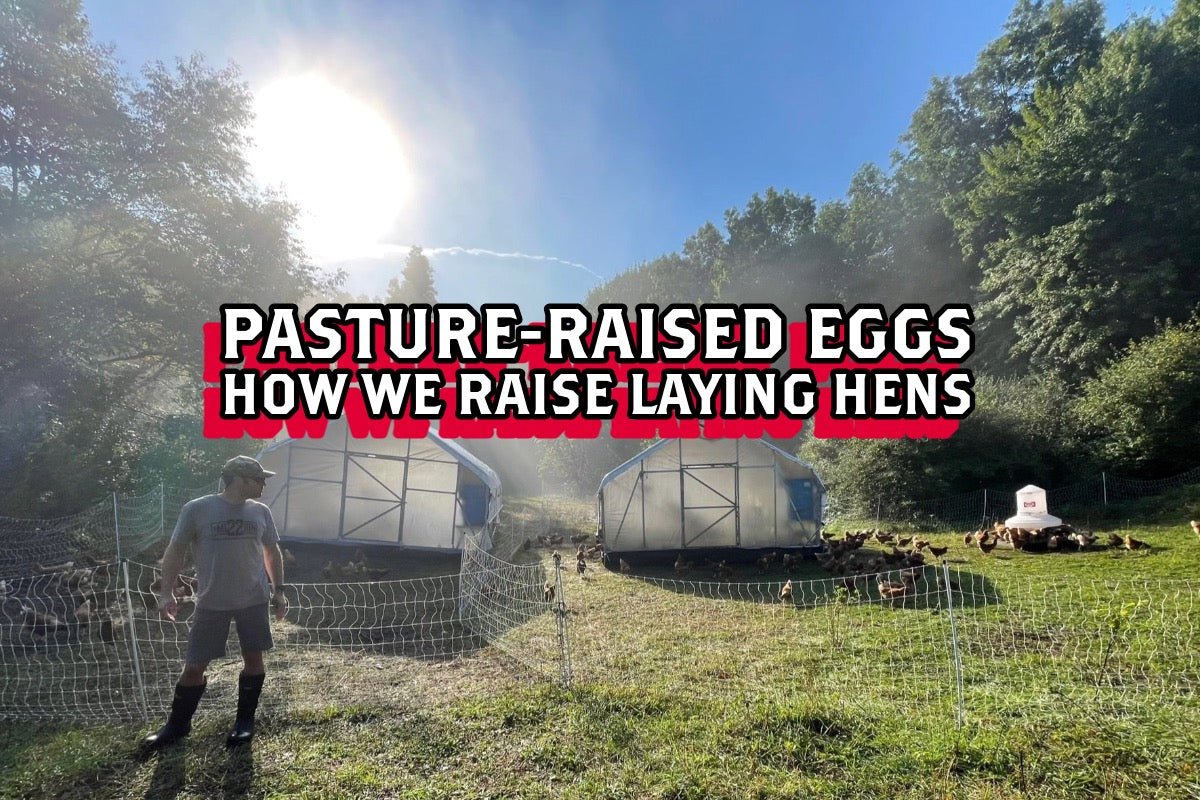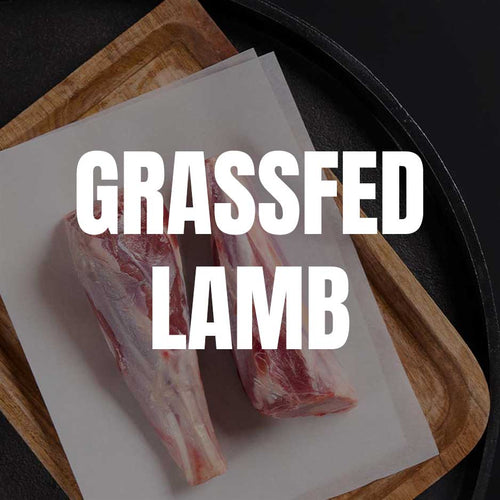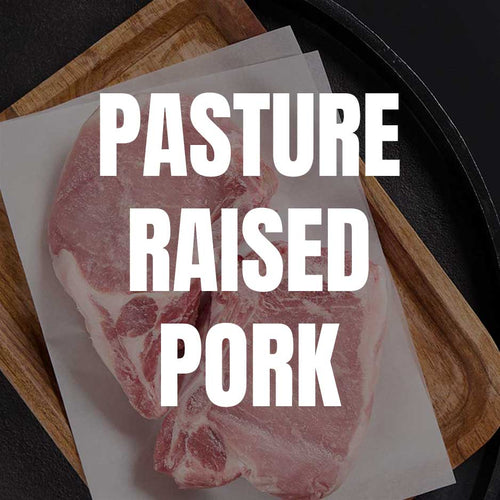
· By Jenni Bajema
Pasture-Raised Eggs - How We Raise Laying Hens
Moving Hens on Pasture
Out of all the animals on the farm, hens are the most complicated to move. Hens do not like change. They are creatures of habit. Here are a couple examples of their stubbornness:
- If we move the coop too far, the hens will fly back to the old area to sleep at night (even with no coop there).
- A traumatic event (like a predator attack) can affect a flocks behavior for life- we had a flock that would sleep in the nesting boxes after being attacked at night.
- We have a hen that started laying eggs in the horse hay- when moved away from the hay, she would fly out of the coop to lay her egg and fly back in when done.
- Hens will recognize a new dog right away- we have to slowly introduce new livestock guardians to ensure a stress-free transition.
So we keep this in mind throughout all our interactions with the hens.

Step 1: Set up New Pasture.
To start, we set up portable electric net fencing on fresh pasture. We give the hens a large area to roam. This allows the hens to express their natural inclination to explore and hunt for food. While the hens on this pasture, we monitor their impact to ensure the pasture stays intact and healthy.
Step 2: Small Moves
Because the hens roost in their coop at night, there is an uneven amount of manure distribution. To combat this, we move the coop every 2-3 days inside the fencing. This allows us to keep the fertilization even and hens on fresh ground.
Step 3: Monitor the Pasture
This is the most important part of a rotational, regenerative system. Pastures change with time and can be different on parts of a property. On top of that, hens can be hard on pasture. On thinner pasture, they eat grass right down to the ground. They make large holes for dust bathing and can leave a lot of manure in their wake. We keep close eye on the pasture daily. When we think the pasture has all the impact it can take, we move to the next. Sometimes that is 4 days, sometimes it's 10 days. The land dictates.
Step 4: Repeat
When it's time to move the hens, we start again. Set up fresh pasture, open it up, and move the coop into the new pasture.
What do the Hens Eat?
Our hens eat a local, Non-GMO grain. They spend their days foraging grass, bugs, and plants. They experience sun, rain, snow and ALWAYS have fresh air to breathe.
What Happens During the Winter?
Because we live in Michigan, we have winter months of cold and ice and snow. During these months, we park our mobile egg coops. This allows us to hook up to electric to set up water de-icers and lights in the coops. But just because we have to park for a few months doesn't mean we sacrifice our commitment to nutrient dense eggs. Here is how we provide pasture on winter:
- We give the hens round bales of hay throughout the winter.
- We park extra schooners around the hen coop to provide extra shelter and areas to roam even in adverse weather.
- We regularly lay out fresh hay bedding throughout the coops and the ground surrounding so the hens can scratch and explore.
So you can see, we go above and beyond to ensure our hens are fed well even in the winter months. And that equates to healthier eggs for you.
False Egg Labels Claims:
The egg world is FLOODED with false label claims. "How can they be used if they are false?", you might ask... Because large egg companies pay lobbyist to define egg labels in the most advantage light for them. Then they pay these lobbyists to create the hoops you have to jump through so difficult, that it's very hard for small or new producers to attain any label claims.
Cage-Free: Hens are housed in a barn. They are crowded, never experience sunlight nor fresh air. They are fed a conventional, GMO grain.
Free Range: Hens are (again) housed in a barn. The hens are given a small hole in which they can go outside if they choose. There is no defined rule about how large of an outdoor space is needed. In conventional barns, it makes it more difficult for the growers if the hens actually go outside, so they actually do everything they can to keep them in. Hens are fed a conventional, GMO grain.
Pasture Raised: There is no regulation surrounding this label. So even though it's used in the stores. It means NOTHING.
Organic: The hens are (yet again) housed in a barn. Like free range, they are given access to the outdoors without any definition of the size of the area. The only difference here is the hens are fed organic food.
So these claims are stamped on the egg carton, then the consumer is supposed to trust that they mean what the average person would assume they mean. Unfortunately, they don't. The only true way is to KNOW WHERE YOUR FOOD COMES FROM.
How to Buy Eggs:
After all this talk about Rebel eggs, are you ready to try some for yourself? Our eggs are easy to purchase! You can buy ahead of time on our website. Or if you are in the area, you can stop in and buy some at the farm. On farm purchases are also made through our website. Our Self Serve Pick Up room is open 365 days a year from 7am-7pm.











